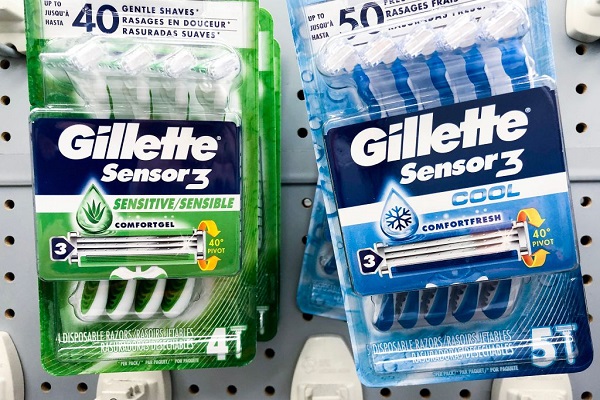Fundsmith buys world’s largest consumer goods company – again
3rd May 2023 09:01
by Sam Benstead from interactive investor
The new purchase is a classic Terry Smith stock, writes Sam Benstead.

Terry Smith has moved his flagship fund even further into the consumer staples sector by beginning a “small holding” in Procter & Gamble in April.
He previously held the stock, selling in 2016. Writing to investors in his 2016 half-year letter, he expressed concern about CEO turnover and its premium pricing model.
Smith wrote: “We have felt for some time that its premium pricing in certain products and willingness to accept volume declines was particularly ill-suited to the current era of low growth in demand and we were not encouraged to believe that the business would change stance successfully given that it has had three CEOs in three years all of whom were internal appointees. However, it remains a company in which we are interested in investing if circumstances change or we prove to be wrong.”
Fundsmith Equity now has 33.4% in staples, its largest sector bet, including positions in Unilever and L’Oreal.
P&G is the largest consumer staples stock in the world, with a market cap of $368 billion (£295 billion), ahead of Nestle’s $343 billion. It owns a huge suit of household brands, including Head & Shoulders shampoo, Ariel washing machine pods, and Gillette razors.
- Why Terry Smith’s performance has bounced back in 2023
- Five things we learned from the 2023 Fundsmith AGM
- Buy and hold versus changing style: which fund approach is best?
It fits Smith’s strategy of buying established businesses with consistent growth rates and strong profits margins, as well as established brands that consumers will keep buying even in a recession.
P&G shares have risen 116% in dollar terms over the past five years. But despite more than doubling, they yield a respectable 2.4%, as profits and dividend payouts have increased steadily.
Morningstar, the data firm, calculates that profits (operating income) have increased by 5% a year for the past five years on average, and the firm has an operating profit margin of 22%. Its price-to-earnings ratio is 27 times, making it more expensive than the typical US company.
Its financial results for the first three months of 2023 showed 4% revenue growth, with healthcare, and fabric and home care, the best-performing segments.
The top five contributors in April for Fundsmith Equity were Meta Platforms, Microsoft, L'Oréal, Novo Nordisk and McCormick. The top five detractors were IDEXX, Automatic Data Processing, Waters, Mettler-Toledo and Estée Lauder.
Fundsmith Equity returned 3.3% for the month, taking its returns for 2023 to 10.4% and its annualised returns since launch in 2010 to 16%.
- The key trades Terry Smith has been making in recent months
- Terry Smith continues tech buying spree as shares drop
Performance has bounced back this year after a disappointing 2022, when the fund fell nearly 14%.
Terry Smith’s bet on luxury goods shares and technology is paying off. Companies with strong pricing power are delivering under the backdrop of high inflation, with the re-opening of the Chinese economy also fuelling demand for luxury goods.
Top-performing shares this year include LVMH (EURONEXT:MC), L’Oreal, Novo Nordisk and Microsoft (NASDAQ:MSFT).
These articles are provided for information purposes only. Occasionally, an opinion about whether to buy or sell a specific investment may be provided by third parties. The content is not intended to be a personal recommendation to buy or sell any financial instrument or product, or to adopt any investment strategy as it is not provided based on an assessment of your investing knowledge and experience, your financial situation or your investment objectives. The value of your investments, and the income derived from them, may go down as well as up. You may not get back all the money that you invest. The investments referred to in this article may not be suitable for all investors, and if in doubt, an investor should seek advice from a qualified investment adviser.
Full performance can be found on the company or index summary page on the interactive investor website. Simply click on the company's or index name highlighted in the article.